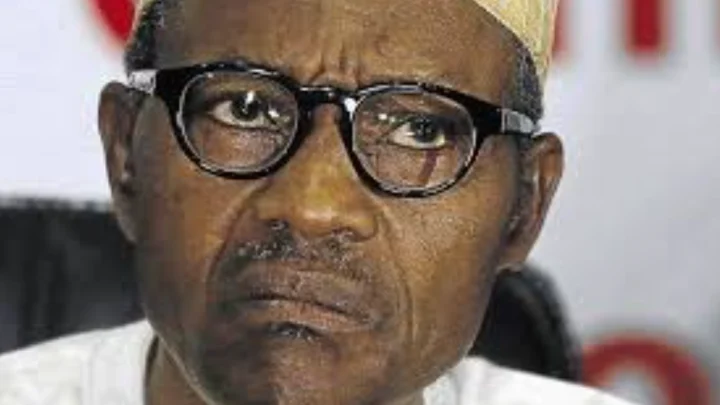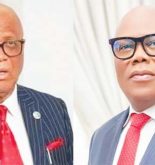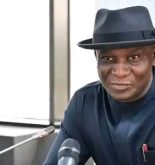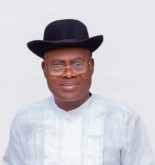By Ibanga Isine
The End of a Polarising Leader
Former Nigerian President Muhammadu Buhari’s death in a London clinic on July 13, 2025, signalled the end of an era for a polarising character who influenced Nigeria’s political climate as both a democratically elected leader and a military dictator. However, the deafening silence from key Western nations, notably the United Kingdom, where he allegedly died, has sparked long-standing conspiracy theories and raised eyebrows. West African regional leaders and a few others, including China and India, have offered their condolences, but, notably, the US, France, and other major world powers have not done so. The question raised by this anomaly is why so few foreign nations have acknowledged Buhari’s demise?
Could it be that they have access to information that Nigerians do not? The lack of condolence messages from Western countries, particularly the United Kingdom, where Muhammadu Buhari spent significant time receiving medical care, appears to be more than a diplomatic error. It raises major concerns and encourages speculation. According to multiple sources, the former president spent around 230 days at a private London hospital throughout his eight-year presidency, with those travels costing Nigerian taxpayers at least N5 billion, owing primarily to the use of presidential jets.
The Jubril Body Double Theory
Social media platforms, particularly X, are buzzing with Nigerians questioning silence. Some have revived a controversial theory from 2017, when his prolonged medical absences in London sparked suspicions that he had died and been replaced by a Sudanese body double named “Jubril.” While Buhari himself perkily refuted those claims in 2018, the lack of condolence messages from major Western governments has heightened these concerns. Many speculate that world leaders are withholding tributes because they know more about Buhari’s identity or situation than the Nigerian people.
Let me be clear: the body-double idea, while intriguing, is still theoretical and lacks verifiable evidence. Buhari’s public appearances, including his 2015 and 2019 election campaigns and overseas engagements, were consistent with his well-known demeanour, despite his apparent decline in health.
What is even more startling is that two other notable Northern leaders, Maman Daura, a close confidante and significant figure during Buhari’s presidency, and former Head of State General Abdulsalami Abubakar, were reportedly receiving treatment at the same hospital during Buhari’s last medical trip to London. Was this just a coincidence, or was it a symbolic reunion of former allies for a farewell following what they considered a job well done? This meeting raises so many questions. Did it happen as a planned curtain call or as a private reunion? At the very least, Nigerians are entitled to greater openness. Ultimately, the millions of dollars spent on those lengthy medical trips overseas came from public funds.
The London Clinic, which practically served as a second State House throughout Buhari’s presidency, owes Nigerians more than simply silence. At the very least, it should provide some clarification or information regarding the disease that plagued the former president for much of his tenure. Buhari was not treated as a private man, but as the sitting leader of a sovereign nation, with public monies covering his medical expenses.
The clinic’s silence is more than just puzzling; it borders on complicity. US President Donald Trump was diagnosed with chronic venous insufficiency yesterday, and the medical report was made public almost immediately. However, in Nigeria, our leaders live in foreign hospitals sponsored by taxpayers while keeping their health a state secret. Political elites travelled there like pilgrims, while the public was left without information about the health of their president.
The Language of Diplomacy
Diplomacy is a language of gestures, and silence can be equally effective as words. Many would argue that diplomatic fatigue may account for the lacklustre international response to the former president’s death. Again, unfulfilled expectations might have plagued his administration (2015–2023).
From his failure to effectively quell Boko Haram’s insurgency and escalating banditry, to the economic difficulties during his tenure, which climaxed in the country’s first recession in decades. His administration’s handling of protests, including the 2020 #EndSARS movement, received worldwide condemnation for suspected human rights violations. Western governments, which are frequently vocal about such issues, may be hesitant to glorify a leader whose legacy was so divisive. A condolence letter risks being interpreted as an endorsement of his poor record, which might spark backlash from their audiences or Nigerian critics.
You can also read – I Have Not Joined APC: Ex-Minister Essien
Another reason could be geopolitical priorities. Nigeria, being Africa’s most populous country and a major oil producer, has seen its global stature dwindle due to domestic issues. Western powers could be directing their diplomatic efforts elsewhere, notably in regions such as Ukraine and the Indo-Pacific, where strategic interests are more vital. Condolence messages, while customary, are not required, and their omission may indicate a pragmatic calculation rather than a conspiracy. However, the regional disparity is noticeable. West African leaders, including those from Guinea-Bissau and Sierra Leone, and the ECOWAS Commission, have appreciated Buhari’s contribution to regional stability. South Africa’s President Cyril Ramaphosa and the African Union Commission also expressed condolences, underlining Buhari’s role in “fostering democracy” and unity.
Non-African voices, including China’s embassy and Indian Prime Minister Narendra Modi, praised Buhari’s initiatives to enhance bilateral relations. These signals highlight Buhari’s localised and selective global effect, making the Western silence even more noticeable. Could there be a less sensational explanation? Perhaps Western governments are sluggish in responding because of bureaucratic procedures or competing agendas. The British High Commission in Nigeria did send a condolence message after his burial, which may contradict claims of deliberate snubbing. Nonetheless, the delay and the general silence of other Western capitals contribute to ideas of indifference—or, worse, implicit awareness of something wrong.
The conspiracy idea concerning a body double, while unlikely, shows a broader issue: a trust deficit between Nigerians and their government, worsened by years of secrecy surrounding Buhari’s health. His unwillingness to disclose the cause of his illness, combined with extended trips overseas, created a fertile ground for speculations. More so, the lack of transparency during his administration left many Nigerians feeling estranged from him and created a perception that has persisted even after his death.
While the loud silence of Western powers may not confirm a strong conspiracy, it does highlight a disparity in how Buhari’s legacy is seen at home and abroad.
The truth is that Nigerians mourning their former leader want answers, not speculation, and that is why I will not promote the conspiracy notion, even if it has some aspect of logic. However, if Western countries have reasons for their hesitation, whether diplomatic, strategic, or otherwise, they should explain them. Silence breeds distrust and gives rise to beliefs that thrive in the shadows.
A government of lies
A recent disclosure by Garba Shehu, former presidential spokesperson and well-known journalist, has muddied the story of former President Buhari’s legacy. The timing of Shehu’s book launch, just days before Buhari died, is uncomfortable and difficult to ignore. It throws a lasting shadow not only on the man’s memory, but also on the administration he led.
In one of the book’s most shocking revelations, Shehu revealed that the widely publicised myth about mice overtaking Aso Rock, which was used at the time to explain the President’s protracted absence, was completely fabricated. He now claims that the claim was a tactical falsehood intended to shift public attention away from Buhari’s deteriorating health. This admission is more than a footnote in Buhari’s legacy; it cuts to the heart of the former President’s carefully constructed image as a man of integrity, transparency, and discipline. It is not only amusing but extremely hypocritical to discover that a government that openly championed the war against fake news, went after opponents with iron fists, and even advocated for severe measures to silence dissenting voices online was itself a purveyor of fake news.
Buhari came to power on a vow to do things differently. He promised to restore truth, rebuild trust, and reset national ideals. However, his administration had continuously failed to deliver on those promises.
Buhari’s administration was characterised by exaggerated anti-corruption rhetoric that protected loyalists while attacking political opponents. It institutionalised nepotism, which his successor, President Bola Tinubu, has also embraced. With opaque budget spending and the suppression of important national information, including the true state of his health, the administration frequently acted more like a cult than a democratic institution.
You can also read – How Aniebiet Antia Allegedly Scams Investors out of Millions in Akwa Ibom
The rodent story is a metaphor for the corruption and deception that defined his presidency. If his media advisers could lie so casually about rats in the seat of power, what else did they lie about? What is the economic situation? How many people were killed by Boko Haram? What about the controversial decisions made behind closed doors under the guise of national interest?
To be clear, this is not an attempt to disparage or dishonour Mr. Buhari after his death. Instead, it is a necessary attempt to set the record straight, based on facts, public records, and confessions from others who worked under him. Nigeria cannot afford to continue romanticising leadership failure or concealing the truth about its former leaders. If the country is to heal and thrive, it must address uncomfortable truths—truths that history demands and future generations deserve.
Regrettably, despite spending billions of naira in foreign hospitals throughout his eight years in power, President Buhari had failed to build a single hospital in Nigeria capable of addressing his medical condition. The same worrying pattern appears to be going on under President Tinubu, who, in just two years, has already made many medical trips overseas, continuing the cycle of neglect that has left the country’s healthcare system in disarray. But, beyond the symbolism of medical tourism, there is a deeper and more disturbing question that has persisted since the announcement of Buhari’s death. With all of the secrecy, confusing signals, and the disclosures of intentional deception from those closest to him, the lines between fact and fiction remain alarmingly blurred.
Did Buhari die on July 13? Perhaps he did.




